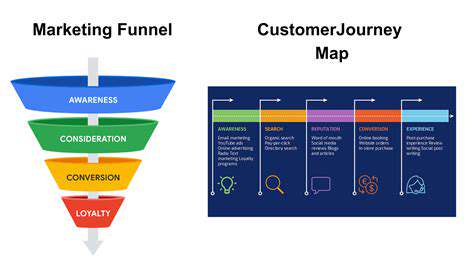Exploring Anxiety Treatment Options: Finding the Right Fit
Exploring Evidence-Based Therapies for Anxiety
Cognitive Behavioral Therapy (CBT)
When dealing with anxiety, Cognitive Behavioral Therapy stands out as one of the most practical and results-driven approaches available today. What makes CBT particularly effective is its hands-on nature – it doesn't just explore the roots of anxiety but provides concrete tools to manage it. The process involves recognizing negative thought cycles and actively working to reshape them. Many find that within weeks of starting CBT, they notice significant improvements in how they handle stressful situations.
The beauty of this method lies in its structured approach. Sessions typically follow a clear roadmap, focusing on current challenges rather than dwelling extensively on past experiences. This forward-looking perspective helps individuals develop coping strategies they can use immediately in their daily lives.
Mindfulness-Based Approaches
Modern anxiety treatment increasingly incorporates mindfulness techniques, and for good reason. Practices like mindful breathing and body scans teach individuals to observe their anxious thoughts without getting caught up in them. This creates a valuable mental space between feeling anxious and reacting to that feeling, which can be transformative for many people.
Regular mindfulness practice changes one's relationship with anxiety. Instead of viewing it as something to eliminate completely, individuals learn to recognize anxiety as a passing mental event. This shift in perspective often leads to decreased intensity of anxious episodes over time.
Exposure Therapy Techniques
For specific phobias and anxiety disorders, exposure therapy offers a proven path to recovery. The process works by gradually introducing individuals to feared situations in a controlled environment. The key lies in the gradual progression, starting with mildly challenging scenarios and slowly building up tolerance.
What many don't realize is that exposure therapy isn't about creating distress – it's about building confidence. Each successful exposure strengthens the individual's belief in their ability to handle anxiety-provoking situations. Over time, what once seemed impossible becomes manageable.
Acceptance and Commitment Therapy (ACT)
ACT presents a refreshing alternative to traditional anxiety treatments. Rather than fighting anxious thoughts, this approach teaches acceptance. The focus shifts from eliminating anxiety to living meaningfully despite it. Participants identify their core values and learn to take action aligned with those values, even when anxiety is present.
This method proves particularly helpful for those who've struggled with other therapies. By changing the relationship with anxious thoughts instead of trying to change the thoughts themselves, many find lasting relief.
Medication Considerations
While therapy forms the foundation of anxiety treatment, medication can play an important supporting role. Modern antidepressants like SSRIs and SNRIs often help regulate brain chemistry to reduce anxiety symptoms. However, medication works best when combined with therapy, as it addresses symptoms while therapy builds long-term coping skills.
It's crucial to work closely with a psychiatrist when considering medication. Finding the right medication and dosage often requires patience and careful monitoring. The goal isn't to mask anxiety but to create sufficient stability for therapeutic work to take hold.
Building an Effective Support Network

Identifying Personal Needs
Creating an effective support system begins with honest self-assessment. Different situations call for different types of support – sometimes you need practical help, other times emotional understanding. Recognizing which type you need at any given moment allows you to seek appropriate assistance.
This process requires regular check-ins with yourself. As life circumstances change, so do support needs. What worked last year might not be sufficient today, and that's perfectly normal.
Developing Reliable Connections
Strong support networks don't happen by accident – they require intentional cultivation. Quality matters far more than quantity when it comes to supportive relationships. A few people who truly understand and respect your journey prove more valuable than dozens of superficial connections.
Building these relationships involves both giving and receiving support. Being there for others during their challenges often strengthens bonds and creates reciprocity when you need help yourself.
Utilizing Community Resources
Beyond personal networks, communities offer numerous support options. Local mental health organizations, online forums, and support groups provide specialized assistance. These resources connect you with others facing similar challenges, creating opportunities for shared learning and mutual encouragement.
Many find that combining personal and professional support creates the most comprehensive safety net. Each type of support serves different but complementary purposes in the recovery journey.
Professional Support Options
There's immense value in professional guidance when dealing with anxiety. Therapists provide evidence-based strategies tailored to your specific situation. They offer an objective perspective that friends and family often can't provide, along with clinical expertise in anxiety management techniques.
Regular sessions create accountability and structure in the recovery process. Many find that even after acute symptoms improve, periodic check-ins help maintain progress and prevent relapse.
Maintaining Your Support System
Effective support networks require ongoing attention and adjustment. Relationships and needs evolve, and your support system should evolve with them. Regular evaluation helps ensure you're getting what you need while also being available to support others.
Remember that self-care forms the foundation of any good support system. You can't effectively support others or benefit from their support if you're running on empty. Making time for rest and rejuvenation isn't selfish – it's essential for maintaining healthy relationships.